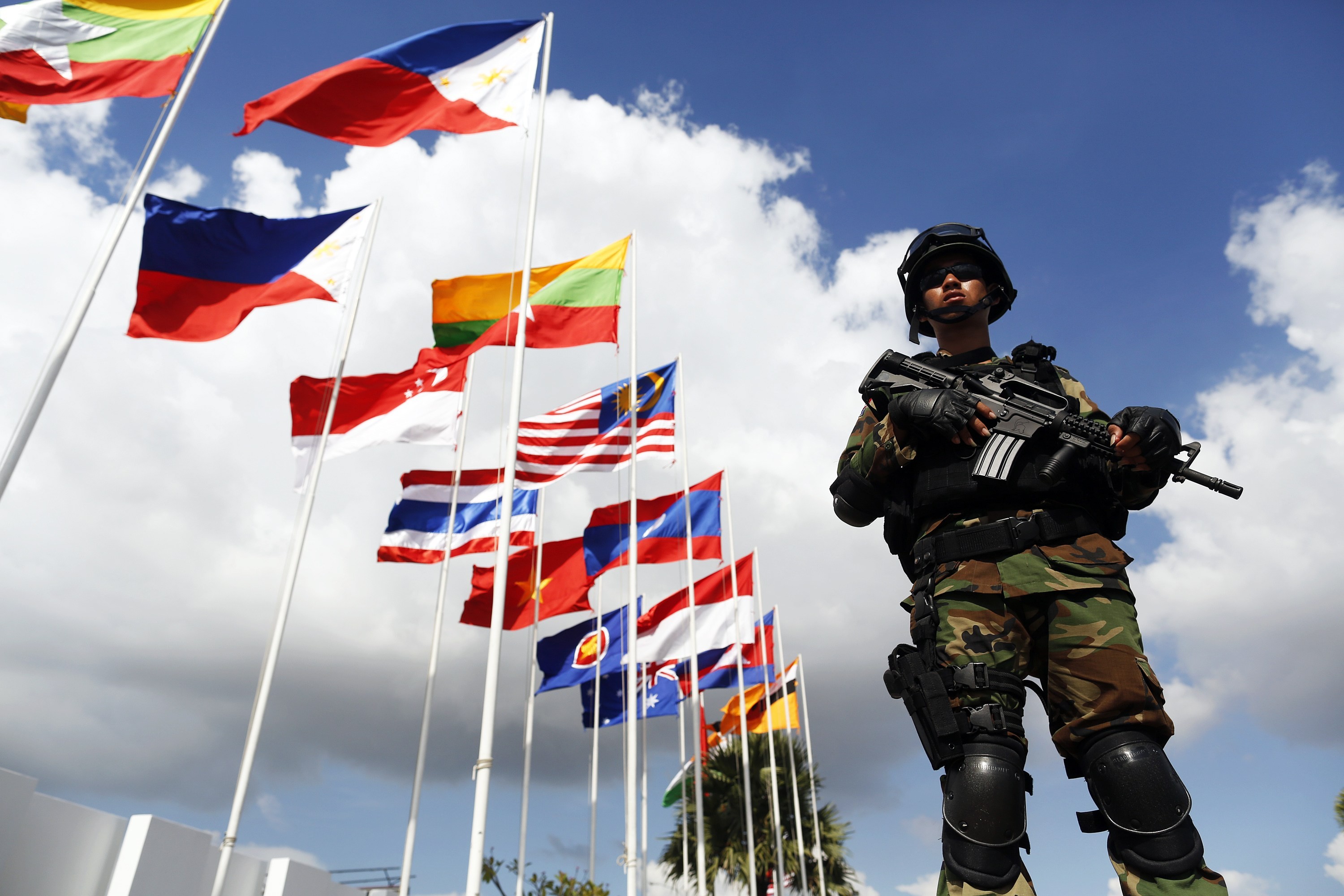Calls mount to scrap ASEAN human rights plan

(Al Jazeera) – The draft hasn’t been published officially but a copy obtained by Al Jazeera shows that these principles would require that human rights and freedoms be “balanced with the performance of duties” and be subject not only to regional and national “context” but limited on a variety of grounds including “national security”, “public order” and “public morality”.
Ten Southeast Asian nations are set to sign a declaration critics say will degrade, not protect, human rights.
Leaders from the Association of Southeast Asian Nations (ASEAN) will sign the group’s first-ever declaration on human rights on Sunday with a clear statement on the supremacy of the Universal Declaration on Human Rights in an attempt to ease concerns that their own document falls short of international standards.
Indonesia’s Foreign Minister Marty Natalegawa told Al Jazeera that there would be no delay and that the Phnom Penh Statement would include a “very clear assertion” that the implementation of the Asean declaration will be in accord with the Universal Declaration on Human Rights.
“If we were now to doubt and decide to delay there’s no guarantee that it will ever come back,” he said on Saturday. “We have to seize the moment.”
In a grouping that includes the Communist governments of Vietnam and Laos, as well as the monarchy of Brunei and the more vibrant democracies of Indonesia and the Philippines, it has taken years of sometimes tense negotiation for ASEAN to get this far. The commissioners who helped draft the document insist the declaration should be seen as a starting point, rather than an end in itself.
‘Good start’
”Some countries are conservative, some are more liberal so we have to come to a melting pot of all these diversities,” said Muhammad Shafee Abdullah, Malaysia’s Commissioner to the ASEAN Intergovernmental Commission on Human Rights. ”It’s a good start. From here you can only go upwards.”
The United Nations High Commissioner on Human Rights, Navi Pillay, as well as groups such as Amnesty International, have called on ASEAN to delay the adoption of the document.
|
“We are very disappointed and actually, outraged, that such standards are being adopted“ – Yap Swee Seng, human rights activist |
The main point of contention is the declaration’s General Principles. The draft hasn’t been published officially but a copy obtained by Al Jazeera shows that these principles would require that human rights and freedoms be “balanced with the performance of duties” and be subject not only to regional and national “context” but limited on a variety of grounds including “national security”, “public order” and “public morality”.
“We are very disappointed and actually, outraged, that such standards are being adopted,” said Yap Swee Seng, Executive Director of the Bangkok-based Asian Forum for Human Rights and Development. “If ASEAN adopts the declaration, the credibility and reputation of ASEAN will be dented in the eyes of the international community.”
Cambodia, the group’s current chair, is battling accusations of deepening human rights abuses including the forced eviction of people from their land. In the run up to the summit, it tried to close down a series of workshops and discussions arranged by regional and local NGOs.
Organisers say they were forced to cut short events after venue owners were intimidated and hundreds of participants found themselves ordered out of the Phnom Penh guesthouses where they were staying. They were allowed, however, to hold a peaceful rally outside Cambodia’s National Assembly, although riot police kept watch.
‘Living document’
The process of drafting the text has been left mostly to the ten AICHR commissioners, most of them government appointees. The Commissioners say that discussions were held at the national level although there were only two regional consultations with civil society groups: one in Kuala Lumpur in June and another in Manila in September.
The UN’s Pillay says the process would have benefited from being more open.
“This is not the hallmark of the democratic global governance to which ASEAN aspires, and it will only serve to undermine the respect and ownership that such an important declaration deserves,” she said in a statement.

